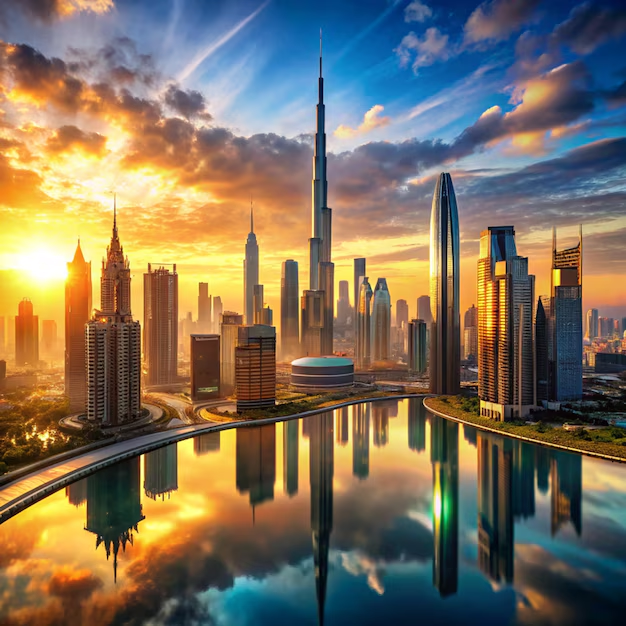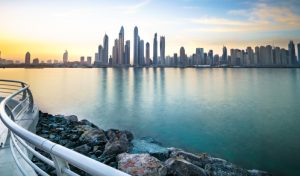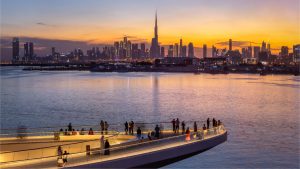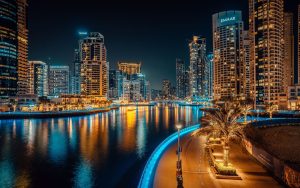What Exactly Are Branded Residences?
At the simplest level, a branded residence is a property developed in partnership with a luxury hotel, hospitality group, or lifestyle brand. Buyers don’t just get a home; they buy into a brand’s design, service, and prestige.
Think: apartments serviced by a five-star hotel team, interiors designed by a couture house, or villas integrated with a wellness brand’s lifestyle philosophy. It’s real estate plus brand equity.
Why Dubai Is Obsessed With Them
Dubai is one of the busiest branded residence markets in the world. Why? A few reasons:
- Demand for differentiation. With so many projects launching, developers need a way to stand out. Partnering with a global name does exactly that.
- Global appeal. An investor in London or Mumbai may not know every Dubai developer, but they know Four Seasons, LUX*, or Bulgari. The brand adds instant trust.
- Lifestyle-driven buyers. Many HNWIs buying in Dubai aren’t just chasing ROI. They want a home that aligns with their personal brand and lifestyle.
The Perks Buyers Actually Care About
- Design and Quality
Branded residences usually push higher design standards. It’s not just marble floors, it’s curated interiors, lighting, and layouts shaped by luxury hospitality expertise. - Services
Think concierge, housekeeping, valet, spa access, even chefs on call. Living in a branded residence often feels like living permanently in a five-star hotel. - Exclusivity
These projects are limited in number and often in prime locations, making them aspirational assets. - Rental Premiums
Tenants — especially corporate executives and high-net-worth renters — pay extra for a recognized brand. That translates to stronger rental yields.
But Let’s Be Honest — The Price Premium
All of this comes at a cost. Branded residences typically carry a 20–30% price premium compared to similar non-branded properties in the same area.
For example:
- A prime two-bedroom apartment in Business Bay might sell for AED 3.5M.
- A branded equivalent — same size, similar location — could go for AED 4.5M.
That raises the question: will the market keep rewarding that premium, or is it hype-driven?
The Investment Case
Here’s why many investors still justify the premium:
- Higher Resale Value. Branded projects tend to hold their value better. In some cases, they outperform the wider market because demand remains strong even in slower cycles.
- Rental Premiums. Tenants will pay more for a Bulgari apartment than for a generic one next door. In luxury leasing, brand matters.
- Global Demand. Branded residences attract international buyers who recognize the name and trust the product, widening your resale pool.
In other words, you’re not just paying for marble and a gym — you’re paying for trust, perception, and liquidity.
Risks and Caveats
Not every branded project is created equal.
- Overbranding. Not all brands translate well into real estate. Some partnerships feel forced.
- Service delivery. The promise of “hotel-like living” needs to be maintained. If management standards slip, the brand halo fades quickly.
- Premium erosion. Pay 30% more today, but if supply keeps rising, will premiums compress over time?
This is where research matters. Stick to globally recognized hospitality brands with proven real estate track records.
Dubai 2025: Where Branded Residences Stand
Right now, branded residences account for a growing slice of Dubai’s luxury launches. Palm Jumeirah, Downtown, Business Bay, and even emerging areas like Dubai Creek Harbour are seeing branded concepts.
A few notable shifts in 2025:
- Beyond hotels. Fashion and lifestyle brands (Cavalli, Versace) are joining the space.
- Ultra-luxury only. Most branded residences sit firmly in the AED 5M+ bracket, signaling they’re targeting the top of the market.
- Serviced vs. non-serviced. Some branded residences are fully serviced, while others just use design/licensing partnerships. The distinction matters for both buyers and tenants.
Trend or Long-Term Asset Class?
Here’s the honest take: branded residences aren’t a fad. They tap into something bigger — the merging of lifestyle, luxury, and real estate. Globally, they’ve shown resilience, and Dubai’s appetite for them only seems to be growing.
Are they for everyone? No. For a first-time buyer chasing pure yield, the premium may not make sense. But for luxury investors, end-users who value service, or anyone chasing long-term prestige, they’re evolving into a serious asset class.
The Emotional Side of It
It’s also worth acknowledging that buyers don’t always make these decisions with calculators. Some people want to say, “I live in a Bulgari residence” or “My home is serviced by LUX.”* That emotional satisfaction is part of the value. ROI isn’t always a spreadsheet — sometimes it’s status, comfort, or the feeling of belonging to something exclusive.
Final Thought
So, are branded residences in Dubai just a trend? No. They’re a premium product with global appeal, built for a specific audience that values service, design, and exclusivity.
Will they outperform every other property type? Not necessarily. But as part of a balanced portfolio — or as a long-term home for high-net-worth buyers — they’re proving to be more than hype. They’re carving out their own investment class in a city that thrives on reinvention.
